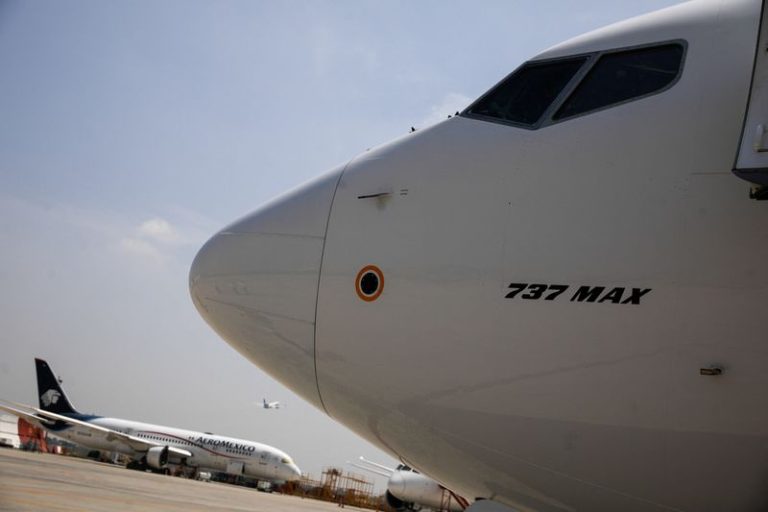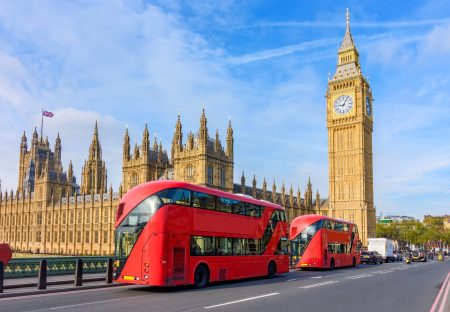By Mike Spector and Chris Prentice
(Reuters) -The U.S. Justice Department is pushing for Boeing (NYSE:) to plead guilty to a criminal charge after finding the planemaker violated a settlement over fatal 737 MAX crashes in 2018 and 2019 that killed 346 people, two people familiar with the matter said on Sunday.
The Justice Department is expected to formally offer the plea agreement to Boeing later in the day, the sources said. Justice Department officials plan to give Boeing until the end of the week to respond to the offer, which they will present as nonnegotiable, the sources said. Should Boeing refuse to plead guilty, prosecutors plan to take the company to trial, they said.
The decision to move toward criminally charging Boeing deepens an ongoing crisis engulfing the planemaker, exposing the company to an additional financial penalty and tougher government oversight.
Spokespeople for Boeing and the DOJ declined to comment. Reuters previously reported that U.S. prosecutors were recommending the Justice Department criminally charge Boeing.
A guilty plea could also carry implications for Boeing’s ability to enter into government contracts such as those with the U.S. military that make up a significant portion of its revenue. Companies with felony convictions can receive waivers to continue entering into such contracts, and it remained unclear to what extent the Justice Department’s proposed plea deal addresses the issue.
Justice Department officials revealed their decision to victims’ family members during a call earlier on Sunday. The proposal would require Boeing to plead guilty to conspiring to defraud the U.S. Federal Aviation Administration in connection with the fatal crashes, the sources said.
The proposed agreement also includes a $487.2 million financial penalty, only half of which Boeing would be required to pay, they added. That is because prosecutors are giving the company credit for a payment it made as part of the previous settlement related to the fatal crashes of the Lion Air and Ethiopian Airlines flights.
Boeing could also likely be forced to pay restitution under the proposal’s terms, the amount of which will be at a judge’s discretion, the sources said.
The offer also contemplates subjecting Boeing to three years of probation, the people said.
The plea deal would also require Boeing’s board to meet with victims’ relatives and impose an independent monitor to audit the company’s safety and compliance practices for three years, they said.
It is unusual for the Justice Department to inform other interested parties of its plans before notifying the company in its crosshairs, a third source said. But the Justice Department, led by Attorney General Merrick Garland, has sought to change its tack after facing backlash from the victims’ families over the original 2021 agreement. Victims’ relatives found out abut the 2021 deal only after it had been negotiated.
The Justice Department’s push for Boeing to plead guilty follows a separate January in-flight blowout that exposed continuing safety and quality issues at the U.S. planemaker.
A panel blew off a new Boeing 737 MAX 9 jet during a Jan. 5 Alaska Airlines flight, just two days before a 2021 deferred prosecution agreement with the Justice Department expired.
That agreement had shielded Boeing from prosecution over the 2018 and 2019 fatal crashes. Boeing has previously said it “honored the terms” of the settlement and formally told prosecutors it disagrees with the finding that it violated the agreement.
U.S. lawmakers in June grilled Chief Executive Dave Calhoun over Boeing’s tarnished safety record. Lawyers for victims’ family members have cited criticism from Capitol Hill when pressing the Justice Department to prosecute the planemaker and impose a fine of up to $24.78 billion.
Boeing previously paid $2.5 billion as part of the deal with prosecutors that granted the company immunity from criminal prosecution over a fraud conspiracy charge related to the 737 MAX’s flawed design.
Boeing had to abide by the terms of the deferred prosecution agreement for a three-year period that ended on Jan. 7. Prosecutors would then have been poised to ask a judge to dismiss the fraud conspiracy charge. But in May, the Justice Department found Boeing breached the agreement, exposing the company to prosecution.
Read the full article here









